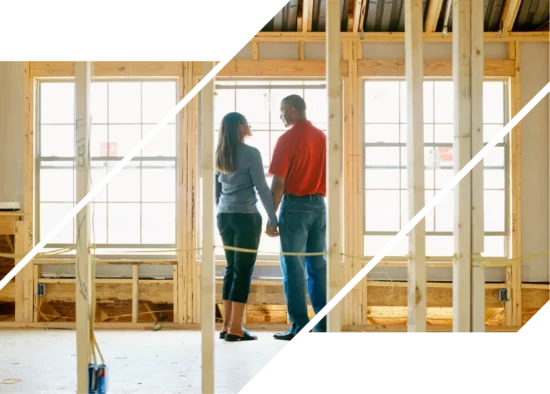Buying your dream home should be one of the most joyful events, and ICCU wants it to be that way. Although buying a home can be stressful at times, especially when it comes to the expenses that come along with it, taking the time to budget for a new home can save you from some of the stress, making buying your dream home a dream experience as well! So, how do you budget for a new home?
Calculate household income after tax
When you’re considering buying a new home, it’s important to calculate your household income after taxes first. Calculating your household income after taxes is the first step to not only budget for your dream home, but also for your day-to-day budget. Experts recommend that your cost for housing should account for no more than 25% of your monthly budget. Taking your household income after tax into consideration will help you determine just how much home you can afford, and give you a starting point to create your savings plan.
Calculate household expenses
After you calculate your household income after taxes, it’s time to calculate your expenses. Expenses include savings, food, utilities, transportation, health, recreation, personal spending, charitable donations, and more. While experts recommend 25% of household income for your housing expenses, it also needs to make sense with your other expenses. Setting up a budget can help you have a good grasp of what you typically spend each month, and what you can really afford for a mortgage payment.
Save for a deposit to avoid PMI
Private Mortgage Insurance (PMI) is often required for mortgages that have less than a 20% down payment. PMI typically costs between 0.5% and 1% of the entire loan amount. If you are able to save for a down payment that allows you to avoid PMI, it will save you on a monthly basis. Avoiding PMI helps lower the monthly payment on your mortgage, so you’ll have more room in your budget for expenses or to put into savings.
Determine what you can afford
After calculating your income, budgeting for all of your monthly expenses, and following the 25% guideline, you will have a good idea of how much you can afford in a monthly payment. For example, if your monthly income after taxes is $1,000, you can afford $250 in monthly housing expenses. You can also use our Mortgage Qualifier Calculator to calculate how much of a purchase price you can afford based on your monthly payment. In addition to these resources, it is important to remember that housing expenses include more than just the mortgage payment. It also includes taxes, homeowner’s insurance, maintenance costs, homeowner’s association fees, and so forth. For example, if you can afford a $1,000 monthly housing payment, $850 might be for your mortgage (including principal, taxes, and insurance), $50 might be for your homeowner’s association fee (HOA), and $100 might be for any maintenance costs. Your realtor and loan officer will be able to assist you with this information as you shop for your dream home.
Get pre-approved
While these are some general tips on how to help you budget for your dream home, it’s still important to get officially pre-approved and see how much of a loan you are able to qualify for. By getting pre-approved, you will know how much you can afford and are approved for based on your actual financial situation, and you’ll be able to consider homes within that range.
Check your dream home
It’s important to remember to do your due diligence and investigate your new home. This includes hiring an appraiser and a home inspector. An appraiser will determine the value of the home and ensure that you are not paying more than it is worth. A home inspector will ensure that the foundation is sound, AC and furnace systems are functioning properly, and that the roof is safe. Some might even give you an estimated life expectancy. For example, if the inspection report shows that your roof has the potential of leaking very soon, it’s important to negotiate your purchase price so you can afford to get the roof replaced or require that it is repaired before you close on the home.
Using these tips can help give you confidence in navigating the process of purchasing your dream home while making it simpler for you. If you find you need assistance, we are here to help! Please reach out to one of our Mortgage Loan Officers to get your pre-approved mortgage loan and any questions you have answered. Happy house hunting!



